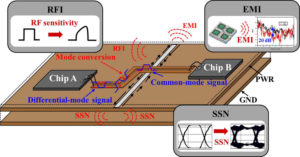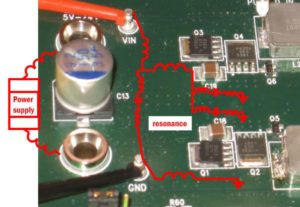PCB Board Electromagnetic Compatibility
Printed Circuit Board (PCB) is a support for circuit components and devices in electronic products. It provides electrical connection between circuit components and devices. It is the most basic component of various electronic devices, and its performance is directly related to electronics, as a result of that, the PCB Board Electromagnetic Compatibility is very important.
The quality of the equipment is good or bad. With the development of the information society, various electronic products often work together, and the interference between them becomes more and more serious. Therefore, the electromagnetic compatibility problem becomes the key to whether an electronic system can work normally.
Similarly, with the development of technology, the density of PCBs is getting higher and higher, and the quality of PCB Board Reverse Engineering has a great influence on circuit interference and anti-interference ability. In order to achieve the best performance of electronic circuits, in addition to component selection and circuit design, PCB Board Reverse Engineering is also a very important factor in electromagnetic compatibility.

Electromagnetic Compatibility in PCB Board Reverse Engineering
Since the PCB is an inherent component of the system, enhancing electromagnetic compatibility in the PCB layout does not incur additional costs for the finalization of the product. However, in the design of printed circuit boards, product designers tend to focus only on increasing density, reducing space, making simple, or pursuing aesthetics, uniform layout, ignoring the influence of line layout on electromagnetic compatibility, and making a large amount of signal radiation. Form harassment into the space.
A poor PCB Board Reverse Engineering can lead to more electromagnetic compatibility problems than to eliminate them. In many cases, even adding filters and components does not solve these problems. In the end, the entire board had to be rerouted. Therefore, it is the most cost-effective way to develop good PCB wiring habits at the beginning.
It is important to note that PCB Board Reverse Engineering is not strictly regulated and there are no specific rules that cover all PCB layouts. Most PCB layouts are limited by the size of the board and the number of layers of copper clad. Some wiring techniques can be applied to one circuit, but not to another, which depends on the experience of the wiring engineer.


